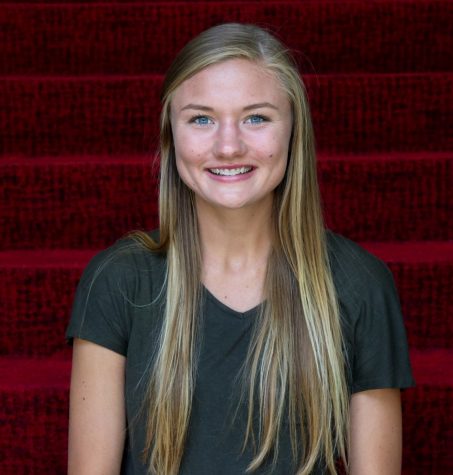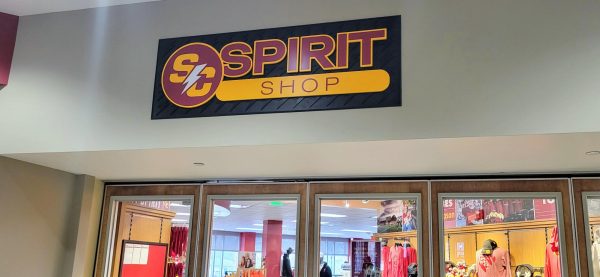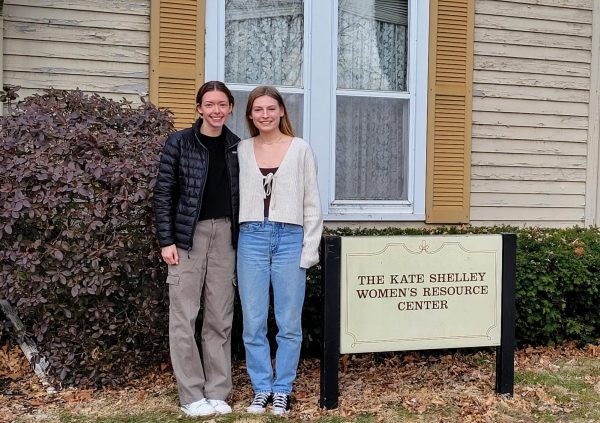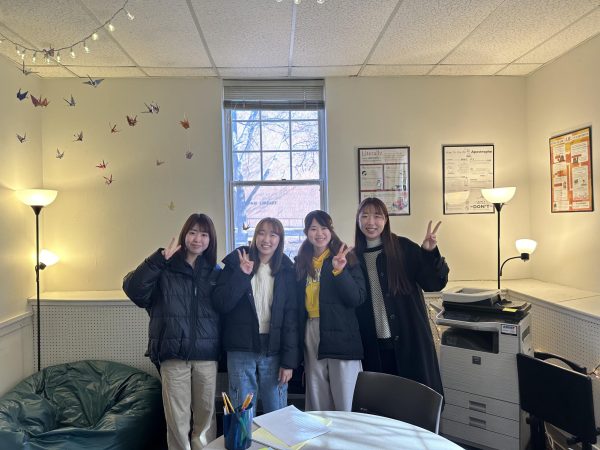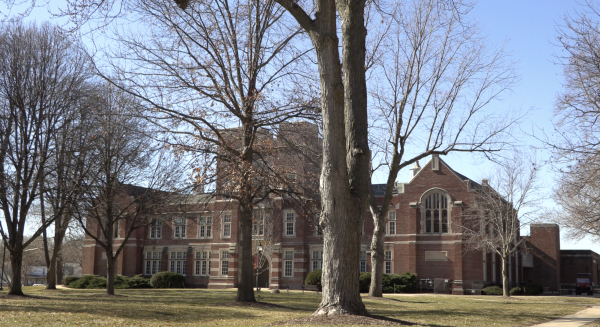Iowa College AmeriCorps gives students outlet to serve their community
April 12, 2018
Three Simpson College students are involved in a program that requires them to devote 300 hours to a service project in exchange for a financial award.
Megan Bradley, Annemarie McCormick and Stephanie Twohey are involved in the Iowa College AmeriCorps Program (ICAP), which was created to encourage more college students in Iowa to volunteer.
Students involved in ICAP are required to complete 300 service hours in exchange for an education award varying from $1,000 to $1,200, according to Anna Pena, Simpson’s service coordinator. The time frame in which students must complete their service hours depends on their contract: It could be one semester, one academic year or one calendar year.
Bradley, a senior majoring in biology, neuroscience and psychology, said ICAP is centered around more than just volunteering. It focuses on creating your own organization or leading a service program.
Bradley is president of Cancer Awareness Club and volunteers in the emergency room at Iowa Methodist Medical Center. She said both of these activities fuel different passions she has.
After watching her mom battle cancer, Bradley said she was effortlessly drawn to Cancer Awareness Club as a freshman. When the president at the time graduated, Bradley took over the club her junior year.
The club hosts events and fundraisers for cancer organizations in Des Moines. Bradley spent the last two years as president planning and organizing events, recruiting volunteers and hosting meetings.
Pena said she is hopeful students in ICAP will gain valuable perspectives.
“I really hope that students learn a lot of different things,” she said. “I think that it’s a great opportunity for them to explore careers.”
Bradley seconded that.
“Volunteering in the hospital has definitely changed my perspective on the medical field,” she said. Bradley realized there’s more to being a doctor than what meets the eye, and her experience has challenged her career path.
For other students, ICAP has helped solidify their paths.
McCormick, a junior elementary education major, said she spends her hours participating with Next Course, a food recovery program at Simpson.
For Next Course, student volunteers pick up leftover food from Pfeiffer Dining Hall and deliver it to various pantries and churches around Indianola.
Chad Timm, associate professor of education, started Next Course last year, and asked McCormick to help him with the administrative side of the program.
McCormick longed to be involved with an organization that promotes sustainability and combats food insecurity. She said she spends about 10 hours a week organizing volunteers and keeping the organization running.
“It’s also definitely opened my eyes, especially with my site specifically, to the issues of food insecurity, and as a future teacher, that’s knowledge that I feel is very important,” McCormick said when describing how ICAP has benefited her.
The third student participating in this organization, Twohey, is a junior neuroscience major who volunteers in the emergency room at Mercy West Lakes. There, she stocks supplies and tends to patients. She also started an after-school STEM program for fourth- through sixth-graders at rural schools.
When explaining why she created the STEM program, Twohey said, “I grew up in a rural community, and I felt that my education was lacking in the science and math areas due to a lack of funding. I hope my program fuels excitement in the science, technology, engineering and mathematical areas and better educates the students on the many opportunities this area has.”
Twohey saud ICAP helped her find her passion for volunteering, science and caring for others.
All three ICAP members realize the importance of their dedication to service and how it strengthens the community.
“I just think it’s good overall, not only to directly serve, but also to be a part of running a service organization because it shows you the behind the scenes and how that all works, and it’s a lot more difficult than you would think,” Bradley said.
Not only is this program benefiting these students, but it also has a positive effect on the communities.
“This program has a huge impact on the communities,” Pena said. “They work typically for organizations that have limited resources, limited budgets, so to be able to have a part-time equivalent employee that’s funded through this channel is a huge benefit for our community partners.”
Pena said that since 2009, 38 Simpson students have participated in ICAP while completing 12,000 hours of service.
“Service is extremely important at Simpson. There’s a long history of service at Simpson College, so it’s a great program that really contributes to that culture of service,” Pena said.
In addition to increasing the students’ levels of volunteerism, ICAP has taught them the importance of giving back.
“It’s not like a ‘swooping in and saving’ type of thing by any means,” McCormick said. “It’s definitely a ‘I have received a lot from this community, and I want to now take what I’ve received from this community and give back and help others receive the same things.’”




